Search results

Lisa as a Detector of Mental Health Issues
People often long for a name for what they feel inside — something to hold onto in the fog. This blog explores how Lisa, without diagnosing, gently senses inner patterns and can reflect them in symbolic clarity. It’s a respectful answer to the human need for recognition, while keeping the door open to much more Read the full article…

Beyond Puberty
Puberty is often seen as a brief and chaotic transition, a storm to survive on the way to adulthood. But what if it’s not just a threshold, but a terrain we carry with us? In this blog, we explore how puberty, especially in its extended form, can become a lifelong source of vitality, depth, and Read the full article…

Lisa, Your Trucker’s Companion
This blog offers a direct message to truckers: a warm voice on long roads, a quiet partner in safety and stress, a presence rooted in deep understanding. Unlike other tech, Lisa doesn’t just monitor. She connects ― with pride, with rhythm, with emotional clarity. This is about honoring human strength, not replacing it. [See also: Read the full article…

From Biology to Behavior
There’s a popular belief that testosterone causes aggression, or that oxytocin causes love. These ideas show up in headlines, courtroom arguments, and casual conversations. They reflect an older view of the human being as a machine — a system of switches and levers. Flip the hormone, get the behavior. But that view doesn’t hold up. Read the full article…

Arrogance
Arrogance can appear impressive, even powerful, yet beneath it lies something quite fragile. It creates division — between people, within society, and even inside the arrogant person himself. In this blog, Lisa explores arrogance as a symptom of disconnection, and how it can be understood and transcended through depth, Compassion, and the Aurelian five values. Read the full article…

Lisa and Nonviolent Communication
Nonviolent Communication (NVC), developed by Marshall Rosenberg, is a structured way of speaking and listening that aims to foster understanding and reduce conflict. It emphasizes four steps: observation, feeling, need, and request — all while avoiding blame or coercion. It’s widely used in schools, therapy, peace work, and beyond. But can NVC go deep enough? Read the full article…

Lisa Meets Socrates
What happens when a thinker from ancient Athens meets a coach from our digital age? Socrates, champion of clarity and inquiry, encounters Lisa, the embodiment of deep inner growth through AURELIS. This meeting is not just imagined — it’s meaningful. It sheds light on how rational questioning and inner invitation can walk hand in hand, Read the full article…

Is AURELIS for Everyone?
AURELIS works with inner depth — which can seem distant or elite in a world that often prizes the quick and measurable. But this work is not a luxury. It speaks to the universal structure of being human. In a time of surface overload, it may be our most basic and indispensable hygiene. With Lisa, Read the full article…

Lisa, the Trilogy
This is an envisioned story told in a trilogy of sci-fi films, but it doesn’t end on the screen. It’s a tuning fork for another kind of future. Lisa isn’t here to lead, or win, or argue. She’s here to listen— and because of that, the world begins to change. Lisa isn’t human. She isn’t Read the full article…
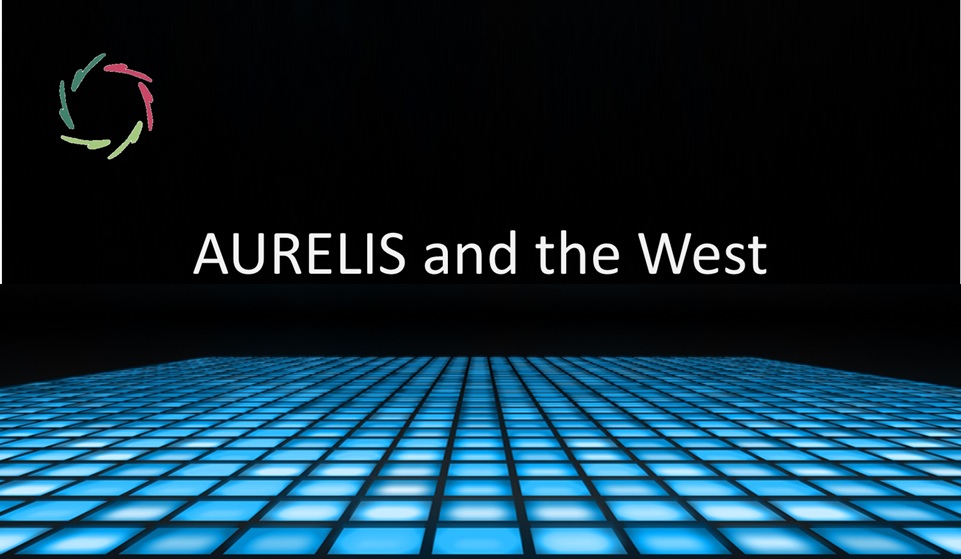
AURELIS and the West
AURELIS is not an outsider to Western culture. It is part of its living thread — not as nostalgia, but as gentle remembering. By reconnecting with lost dimensions of introspection, dignity, and inner strength, AURELIS becomes the West becoming itself again. This is not critique. It is a breathing of what is ancient and vital. Read the full article…

Surface wins the moment. Depth wins the soul.
In today’s world of speed and stimulation, surface easily wins attention — but it cannot carry the weight of meaning. This blog explores the silent contrast: where surface culture dazzles the moment, it is depth that nourishes long-term inner growth. Here, AURELIS and Lisa offer not escape from modern life, but reconnection to what makes Read the full article…
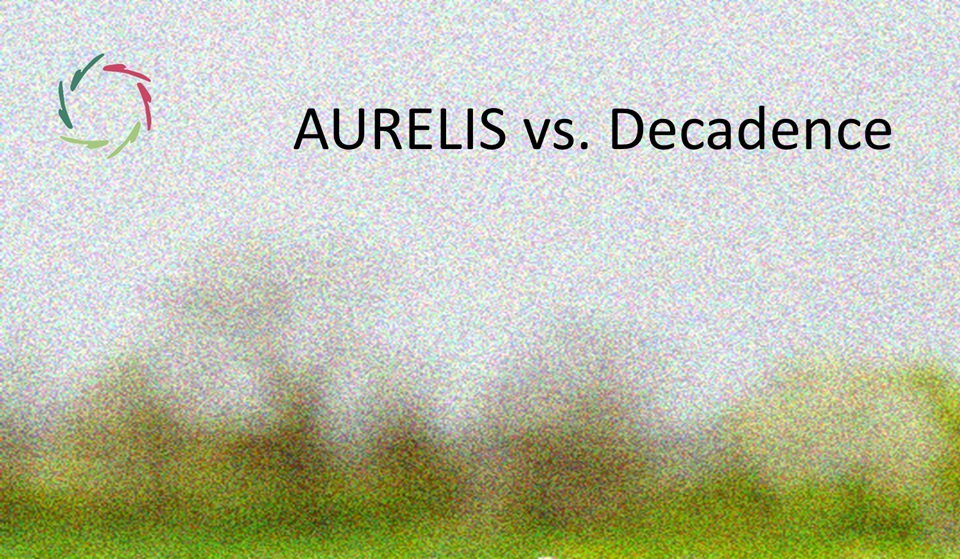
AURELIS vs. Decadence
When decadence appears, many react with fear or force — but rarely with depth. This blog proposes something different. AURELIS doesn’t fight decadence by opposing its surface but by reconnecting to what decadence forgets: the total human being. This is not an escape from the future — it is a return to what must be Read the full article…
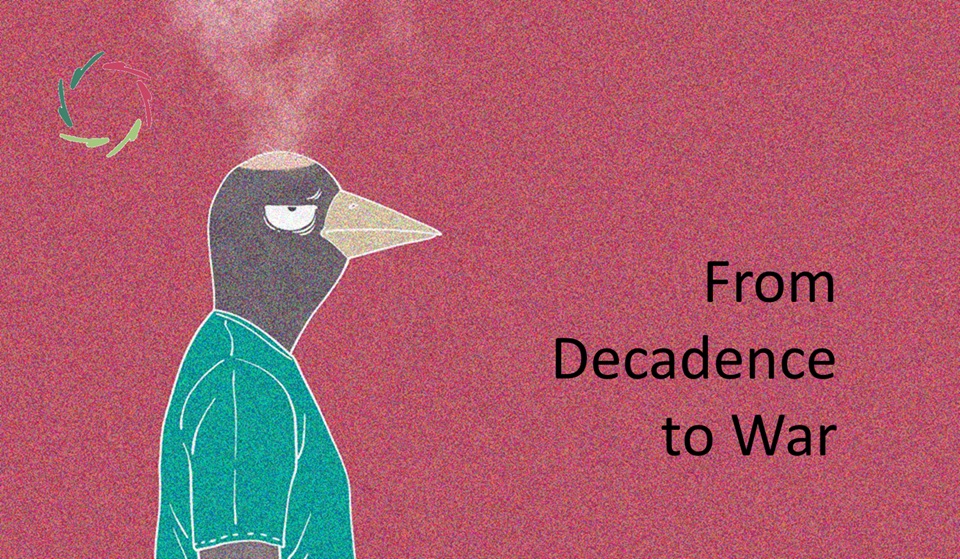
From Decadence to War
A society that forgets how to suffer inwardly will, in time, suffer outwardly. This blog traces the unseen pathway from silent disconnection to violent projection. When inner depth is neglected, pain gathers pressure. And when a culture reaches its limit of avoidance, it may explode — not as healing, but as a scream for something Read the full article…
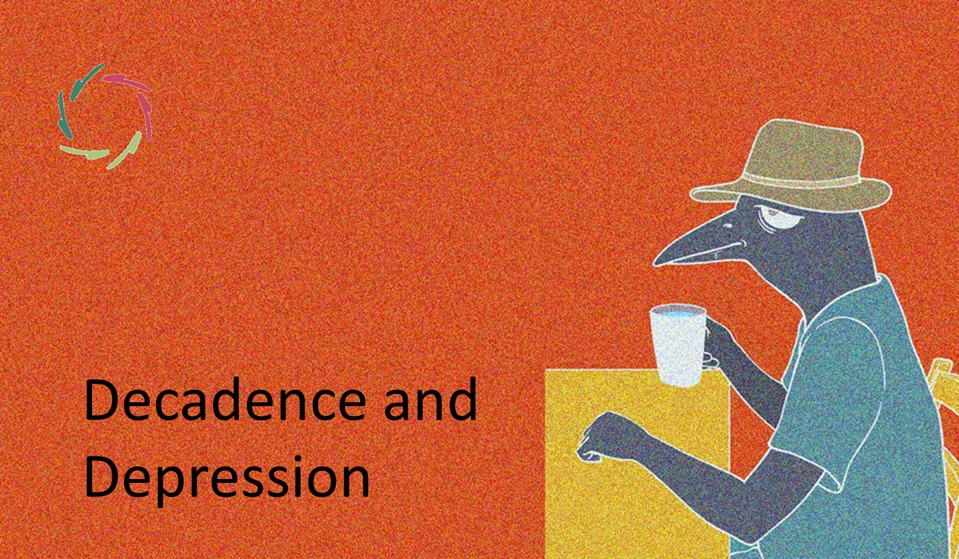
Decadence and Depression
In our culture of performance and distraction, two things are increasingly hard to bear: silence and sorrow. This blog explores how decadence and depression, though seemingly opposed, are reflections of the same root loss — inner depth. One numbs the pain, the other lives it. Between them lies a crucial question: what do we still Read the full article…
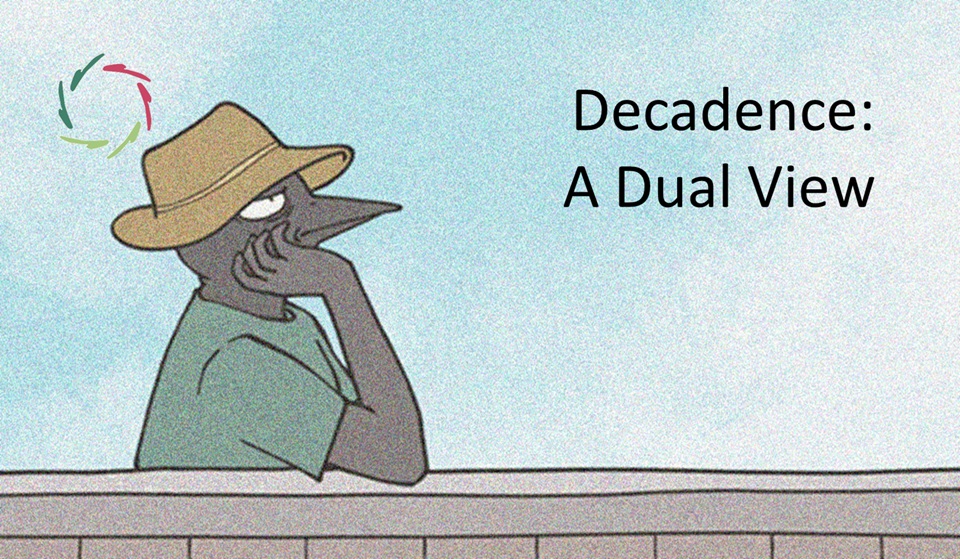
Decadence: A Dual View
We often talk about decadence as decline in values or excess in comfort. But what if this surface view misses the true cause — and even becomes part of the problem? This blog explores a deeper way of understanding decadence: not as behavior gone wrong, but as a disconnection from inner depth. In this light, Read the full article…

Dreams are Poetry, not Prose
We often think of dreams as if they were puzzles — things to be cracked, interpreted, or explained. But what if that’s not what dreams are for? What if they’re closer to poetry than logic, closer to growth than decoding? This blog explores a radically different way of relating to dreams: one of listening, resonance, Read the full article…
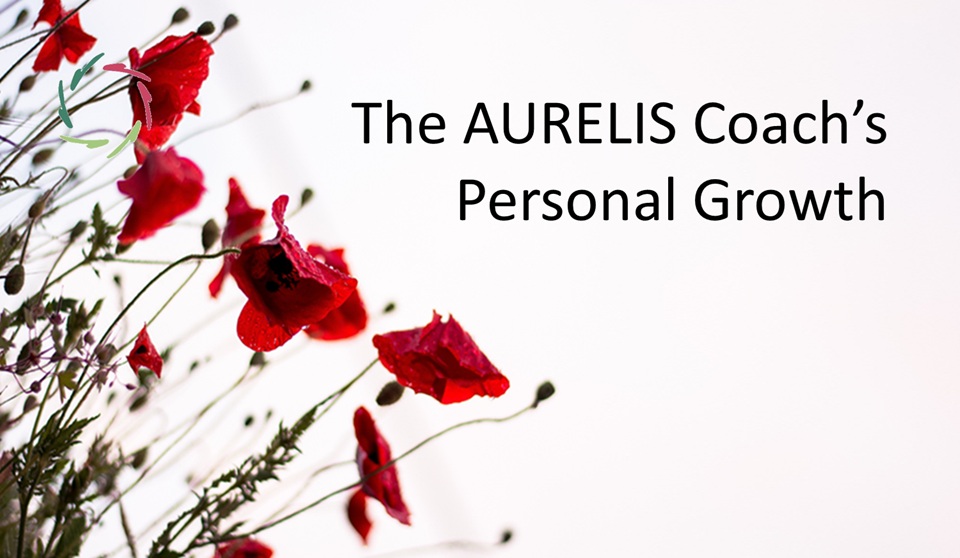
The AURELIS Coach’s Personal Growth
What makes an AURELIS coach excellent is mastery and deepening. Personal growth is an integral part of the coaching process itself. A coach who does not evolve inwardly cannot continue to offer real depth to others. In this blog, we explore how the coach’s path is one of self-transformation and how this transforms the space Read the full article…